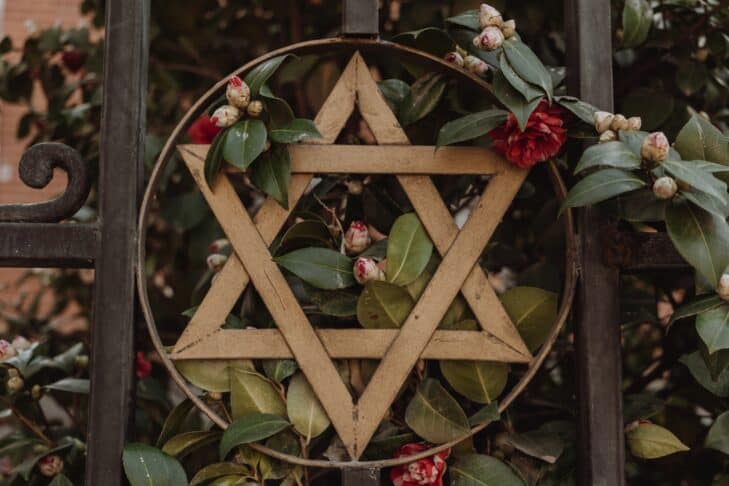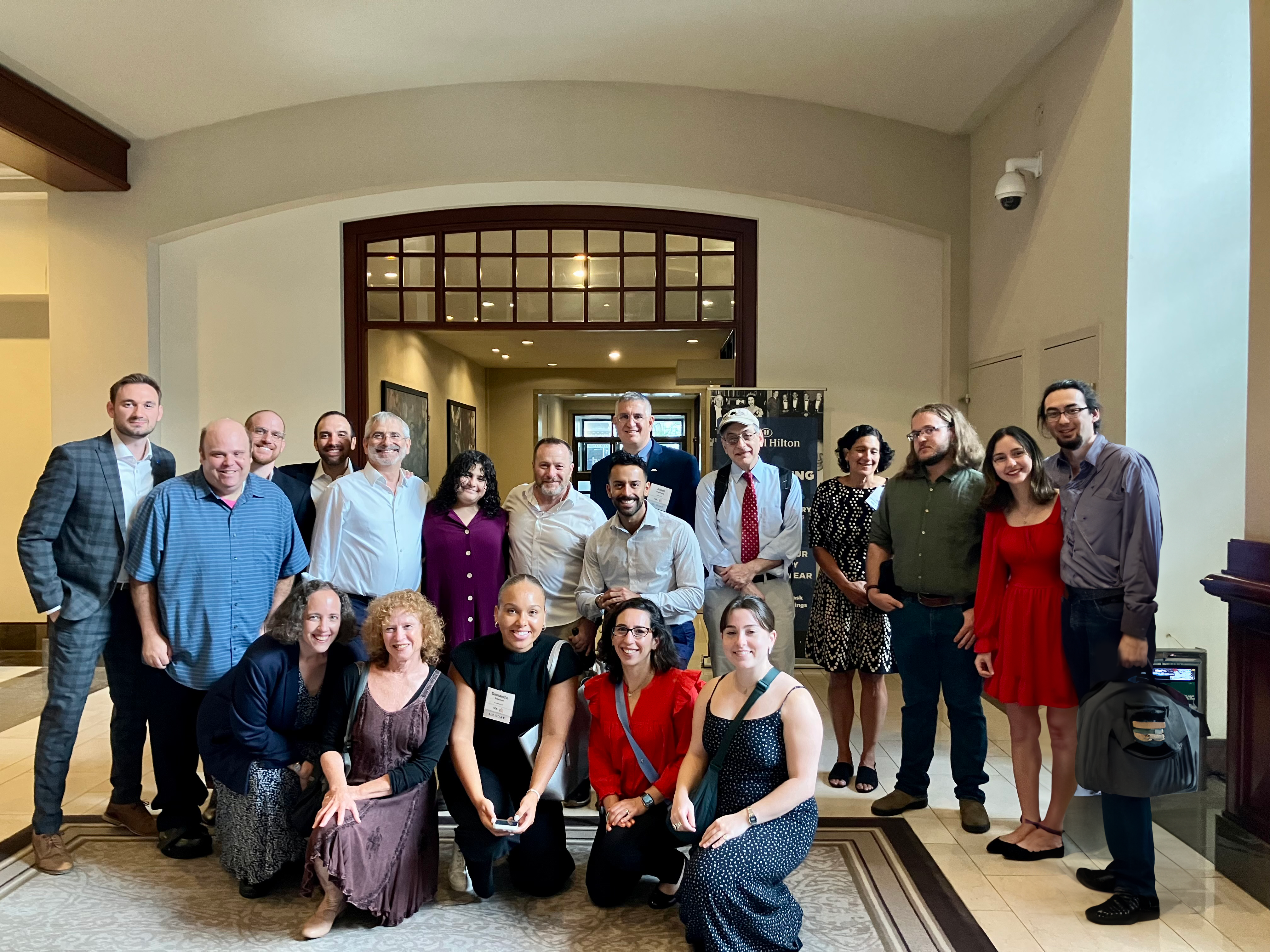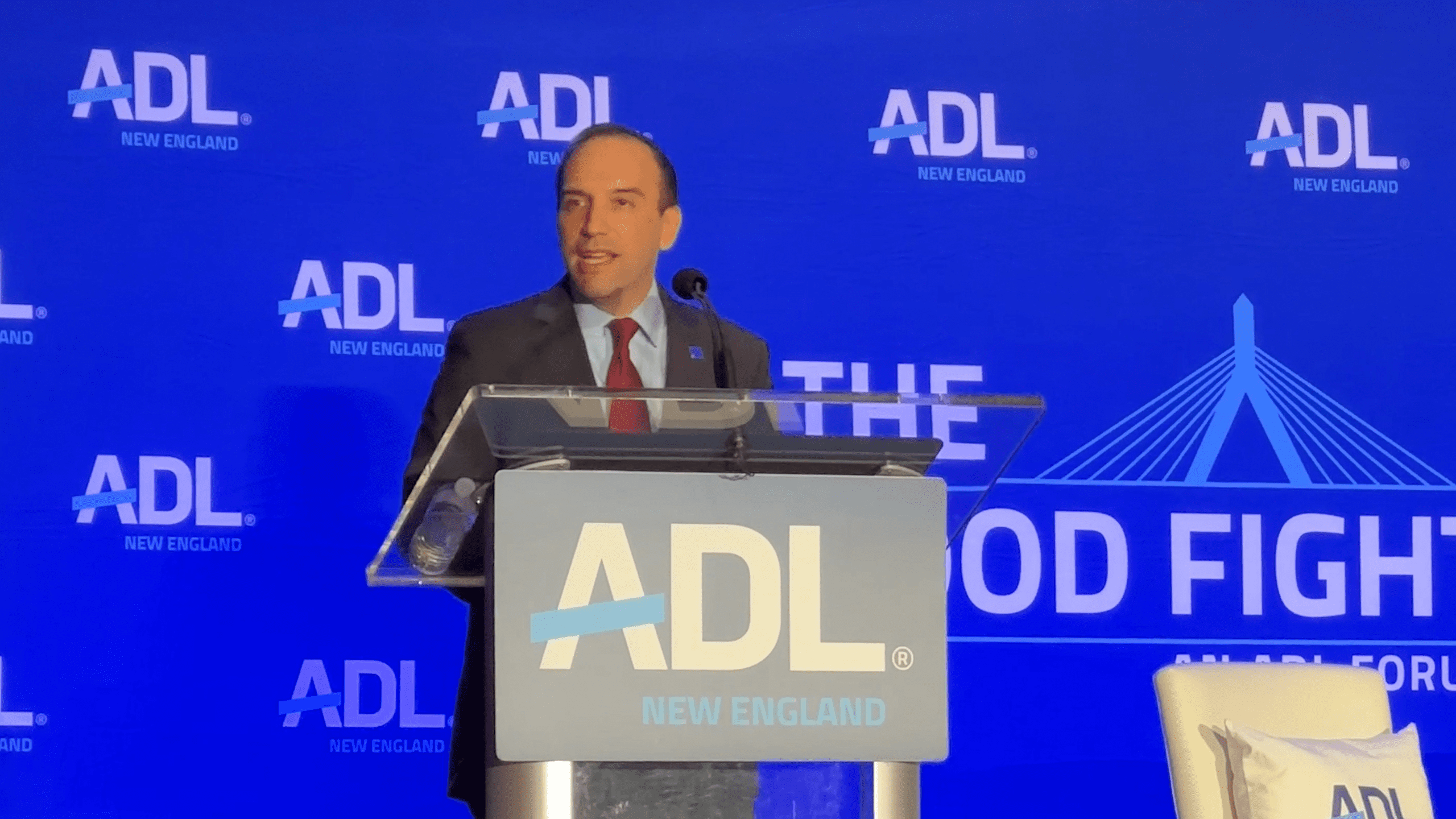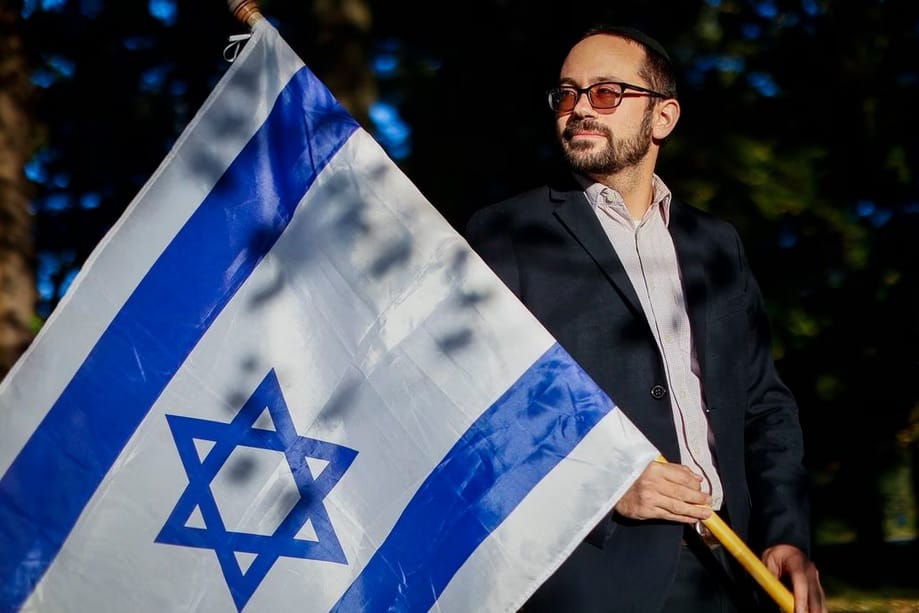By Rabbi Danny Burkeman
My dad’s mother was born in Berlin in 1923 and was one of the lucky ones who escaped before World War II began and the borders were closed. But she still lived through the introduction of a variety of anti-Jewish laws and was there when her synagogue was attacked on Kristallnacht. She experienced one of the darkest moments in Jewish history and rebuilt her life and family in England.
For me, two generations later, growing up in England, her experiences were completely foreign to what I encountered. But there was a sense of vulnerability in the Jewish community. I don’t remember ever going to a Jewish event without security outside the building, both paid professionals and volunteers from the community. There, a requirement of synagogue membership for each family was to be on security for at least one or two Shabbat services every year.
The American Jewish experience has been markedly different; it’s a community that has generally felt settled, accepted and safe. But any study of Jewish history is a reminder that antisemitism has always been there, often lurking in the background. And in the past few years, we have unfortunately borne witness as it has emerged from the shadows and become far more prevalent than at any time in recent history.
Despite this reality, fundamentally, the Jewish people are at our core the people of tikva—hope. We always believe that things can and will get better. We are the people who recognize that we are on a never-ending journey toward a Promised Land, even though at times our progress might seem slow. And we are the people whose memories stretch back through countless generations, and we therefore know that the forces of hate are temporary, while the power of good is eternal.
But it isn’t always easy to maintain tikva (hope) when the world appears dark. In many ways, this is the light that we are called to bring for the world, but it is also a light that we need to share with each other.
I maintain tikva because I know that in the face of antisemitism, I have a network of colleagues and friends from outside of the Jewish community that I can call on for help and support. In the aftermath of the terrible attack on Congregation Beth Israel in Colleyville, Texas, I was able to reach out to my clergy colleagues in the Wayland Interfaith Leaders Association to let them know that the Jewish community was hurting and in need of support. They all responded to let me know that they were ready to stand shoulder-to-shoulder with us and help us in any way we needed.
I am filled with tikva because we are not alone in the fight against hate and prejudice. While white supremacists and other hateful groups might seek to drive wedges between the various communities they target and attack, we remain united and will always stand together in support and solidarity of one another. In Framingham, when we wanted to mark Indigenous Peoples Day with a celebration of love conquering hate, it was a predominantly Black church (the Greater Framingham Community Church) and a synagogue (Temple Shir Tikva) that led the way. We stood shoulder-to-shoulder, arm-in-arm, in responding to antisemitism, racism and prejudice.
And I am bursting with tikva because I have the privilege of working with amazing Jewish teenagers who are finding a way to define and nurture their Jewish identity in new and inspiring ways, despite the antisemitism we may be experiencing. It’s easy to focus on the negative, but in our synagogue, I get to witness these teenagers nurturing Jewish community, standing up for what they believe in and building a bright Jewish future. They are so secure in their identity as Jews and Americans, and as they assume leadership roles in the Jewish community and in society in general, I am certain they will defeat the forces of hate and ensure a brighter future for us all.
Rabbi Danny Burkeman is the senior rabbi at Temple Shir Tikva in Wayland. He is committed to making Judaism relevant in the modern world and always looking for new ways to engage people with Jewish community. He has a weekly podcast, “Two Minutes of Torah,” and was a member of the UJA Federation of New York’s inaugural Rabbinic Fellowship for Visionary Leaders.





